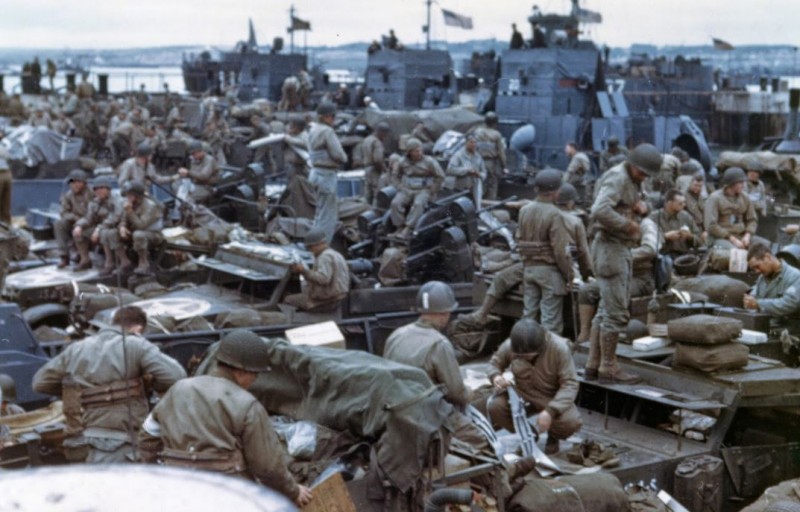
The D-Day invasion, which took place on June 6, 1944, is widely regarded as a significant turning point in World War II. This military operation, also known as Operation Overlord, marked the beginning of the Allied campaign to liberate Western Europe from Nazi Germany's occupation. With meticulous planning, immense bravery, and overwhelming determination, the Allies successfully launched the largest amphibious assault in history, forever altering the course of the war. In this article, we will delve into the details of the D-Day invasion, its strategic importance, and its lasting impact on the outcome of World War II.
Introduction
World War II had been raging for nearly five years, and the Allies were determined to establish a foothold in Europe to defeat Hitler's forces. The D-Day invasion, which targeted the heavily fortified coastline of Normandy in France, was a critical step towards achieving this goal. It required an extraordinary level of coordination, as well as the combined efforts of thousands of troops, ships, and aircraft from various Allied nations.
The Lead-Up to D-Day
In the months leading up to D-Day, meticulous planning and preparation took place. Intelligence gathering, reconnaissance missions, and deception tactics were employed to mislead the German forces about the actual location and timing of the invasion. The Allies knew that surprise and speed were crucial to their success.
Planning and Preparation
Under the command of General Dwight D. Eisenhower, the Supreme Commander of the Allied Expeditionary Forces, a comprehensive plan was developed. The invasion force consisted of five beachheads named Utah, Omaha, Gold, Juno, and Sword. Each beachhead was assigned to a different Allied nation, including the United States, Canada, and the United Kingdom.
The Invasion Begins
On the morning of June 6, 1944, the invasion commenced. Thousands of paratroopers were dropped behind enemy lines to secure key objectives and disrupt German defenses. Simultaneously, the naval armada set sail from England, carrying soldiers, equipment, and supplies across the English Channel.
The Battle on the Beaches
As the landing crafts approached the shores of Normandy, they faced heavy resistance from German fortifications. The soldiers on Utah and Sword beaches encountered relatively less opposition, allowing them to establish a foothold quickly. However, the American forces on Omaha beach faced fierce resistance and suffered heavy casualties due to a combination of rough seas, strong German defenses, and miscoordination.
Securing a Foothold
Despite initial challenges, the Allied troops fought valiantly to secure their positions. The soldiers pushed inland, overcoming obstacles and enemy fire. The success of D-Day relied heavily on the bravery and determination of individual soldiers, many of whom made the ultimate sacrifice for the greater cause.
Breaking Through Enemy Lines
In the following days and weeks, the Allied forces continued to push through enemy lines, steadily advancing across Normandy. They faced counterattacks and intense fighting but managed to gain ground. The liberation of key cities and towns played a crucial role in weakening German control over France.
The Allied Victory
The D-Day invasion proved to be a resounding success for the Allies. By the end of June 1944, over 850,000 troops, along with vast amounts of supplies, had landed in Normandy. The establishment of a secure bridgehead allowed for the rapid buildup of Allied forces, leading to the eventual liberation of Western Europe.
D-Day's Legacy
The impact of the D-Day invasion was immense. It marked a turning point in the war, as the Allies gained momentum and began their march towards Berlin. The successful invasion boosted morale among the Allied troops and dealt a significant blow to German morale. The liberation of Europe from Nazi occupation became an achievable goal.
Conclusion
The D-Day invasion of 1944 stands as a testament to human courage, meticulous planning, and the collective effort of the Allied nations. It was a daring operation that changed the course of World War II. The sacrifices made by the soldiers on the beaches of Normandy paved the way for the ultimate victory of the Allied forces. D-Day remains one of the most iconic and pivotal events in modern history.
SC Grants Ashish Mishra Extended Interim Bail Amidst Lakhimpur Kheri Violence
Remembering the Mumbai Train Bombing: Honoring the Victims and Reflecting on Resilience
Massive Strange Shelf Cloud Appears In Haridwar, Details Inside